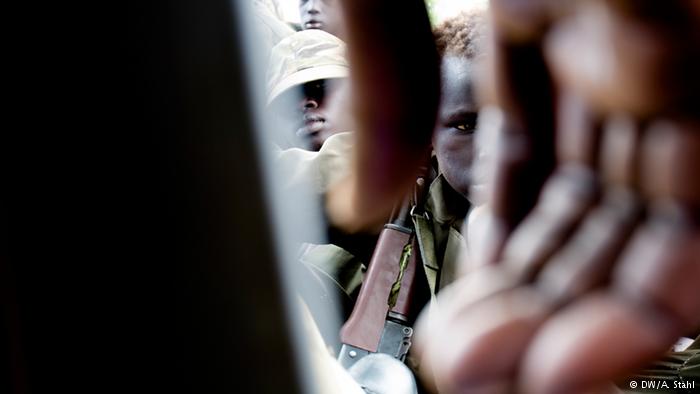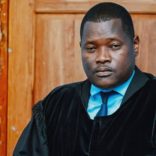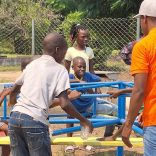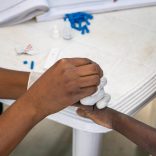WHO to donate about 3.5 million doses of cholera vaccine to Mozambique
Is there a risk of child military recruitment in Mozambique? – Deutsche Welle

DW / Child soldiers in Africa (illustrative picture)
Child soldiers were recruited during Mozambique’s civil war. “If there is war, children are at risk,” a specialist says.
In November 2016, the Community of Portuguese Speaking Countries (CPLP) reiterated its commitment to the United Nations (UN) Agenda 2030 to ensure the elimination of the worst forms of child labour, including recruitment of children as soldiers.
Currently, however, in a country with a history of recruiting children for military activities, there are doubts as to whether the agenda goals will be secured.
“If there is war, children are at risk,” Albino Forquilha, the president of the Mozambican Forces for the Investigation of Crimes and Social Reinsertion, says. Fifty-two percent of the Mozambican population are children, with almost two million living in vulnerable situation, according to United Nations Children’s Fund (UNICEF) data.
According to Forquilha, “children can be protected only during peacetime, where the laws are observed. No-one can observe this if war breaks out”.
Why recruit children?
“A child is recruited because it is thought that for them, military recruitment means self-assertion. Many feel they are ‘the strongest in the jungle’,” the Mozambican expert explains. He too was a child soldier, but today works to promote peace and prevent crime in his country.
According to Forquilha, combating child recruitment is a major challenge, not only for Mozambique, but for many other countries in southern Africa also.
In other regions, the situation is even more critical, despite steps being taken to end child recruitment. In November this year, the Sudan People’s Liberation Movement (SPLM-N) agreed with the United Nations to participate in a plan of action to end child participation in military activities in its ranks for the first time.
Trauma
Around the world, ex-combatants recruited in childhood have to cope with trauma even after the wars end. This has been one of the great challenges for professionals working with these children and with states, Mozambican Paulino Miguel, who develops pedagogical activities with ex-child refugees in Germany, explains.

Children traumatized by war often have difficulty integrating into society. For example, they have problems concentrating or getting jobs after the wars end because many of them could not study.
“It takes specialised people to work with former child soldiers, for example in the field of psychology and pedagogy,” says specialist Miguel. “There are specific ways to make these children see the future and not just think about the past,” he explains.
Mozambique
At present, there are concrete measures to prevent child recruitment in Mozambique. The law prevents the recruitment of minors under 18, former combatant Albino Forquilha says, but “this is only possible because there is peace in the country”.
Although the country is not at war, there have been armed clashes between government and opposition forces. According to Forquilha, control over recruitment is not practiced in all areas of the country. “It is difficult to observe the Renamo side, because we do not have access, but [the law] is being observed by the state,” he says.












Leave a Reply
Be the First to Comment!
You must be logged in to post a comment.
You must be logged in to post a comment.